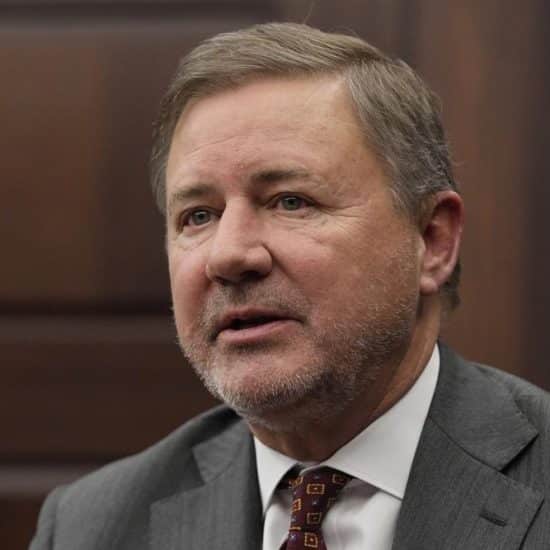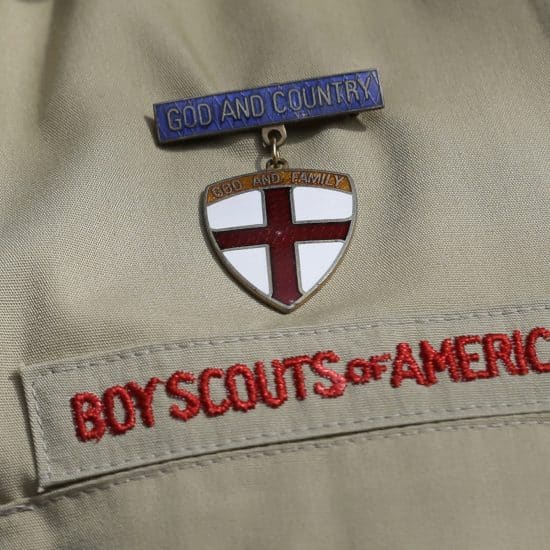Messengers to the 175th annual meeting of the Missouri Baptist Convention broadened the authority of the MBC Executive Board to resolve ongoing lawsuits against five formerly related entities in their morning session on October 27 at First Baptist Church, Raytown.
Messengers split 764-226 to authorize the Executive Board “to make any and all decisions and to take any and all actions with respect to the legal proceedings which, in its sole discretion, are reasonable and prudent, and in the best interests of the convention and our stewardship duties to the past, present and future generations of donors to the Lord’s work” in between annual meetings.
The additional authority even allows the Executive Board to end the lawsuits if it deems such action appropriate.
Word&Way, Windermere Baptist Conference Center, the Missouri Baptist Foundation, Missouri Baptist University and The Baptist Home changed their charters in 2000 and 2001 to allow each to elect their own trustees. The MBC filed suit against the five in Cole County in August 2002. The MBC filed additional legal action against Windermere in Camden County in 2006.
The MBC’s Agency Recovery Group (formerly the legal task force) suggested that because ARG and the Executive Board were privy to confidential information protected by attorney-client privilege, they were in a better position to make critical decisions about the lawsuits than messengers. In its motion, ARG indicated such information was necessary to make “informed” decisions.
MBC lead lawyer Michael Whitehead emphasized client-attorney privilege. Messenger Ryan Stiffler of Corticelli Baptist Church, Russellville, asked, “Who’s the client? I thought the messengers and the churches were the clients.”
Acknowledging that messengers and churches are clients on one level, Whitehead noted the Executive Board, which represents the convention in court, is the client on another level. He added that because the convention had chosen to stream the annual meeting live, he could not protect the attorney-client privilege during the business session.
In his presentation, Agency Recovery Group chair Randy Comer stressed the approval of the motion would simply provide the Executive Board the authority to accomplish the “mandate” convention messengers have given board members since 2001 – to take all steps necessary to “recover” the five institutions.
Messenger approval also would give the board the option to continue the lawsuits or to end them, Comer added.
MBC second vice president Mitch Jackson noted that if messengers voted to end the lawsuits, the convention would be open to “millions of dollars” in liability. The intention of the motion was not to block messengers from voting to end the lawsuits if they desired. “But if you vote today to end [them], we would be liable for millions of dollars,” he said, adding that an end would have to be negotiated.
Messenger Jesse Barnhart of First Baptist Church, Mayview, noted that while he didn’t wish to tie the Executive Board’s hands, “I hesitate to place this much authority in the Executive Board, especially to drop it.”
Scott Gordon of Claycomo Baptist Church, Kansas City, argued against the action, calling it “a step away from accountability to the messengers.”
Messengers voted down an amendment by Frank Whitney of Union Hill Baptist Church, Holts Summit, to grant the Executive Board the power to act but only to end the litigation.
In the ARG’s video presentation, Whitehead indicated that the MBC would pursue recovery of Windermere land at the appellate level. He acknowledged that judges in both the Cole County and Camden County cases have ruled that Windermere did have the legal right to change its charter.
However, Whitehead said, the MBC will argue that Windermere’s land should be returned to the convention because former executive director Jim Hill “tricked” the MBC into excluding a provision in Windermere’s charter that would have guaranteed that the convention would have to approve charter changes. The convention is pursuing fraud claims against Hill in Camden County.
Whitehead noted that earlier governing documents for the Home, MBU and the Foundation contained the clause that required MBC approval before their charters could be changed. The MBC will file motions in the Cole County case to move forward against the three.
Word&Way became a separate entity in January 2001 when Windermere did. Its charter does not contain the restricted clause. The Agency Recovery Group did not indicate what the MBC will do regarding the case against the news journal.



